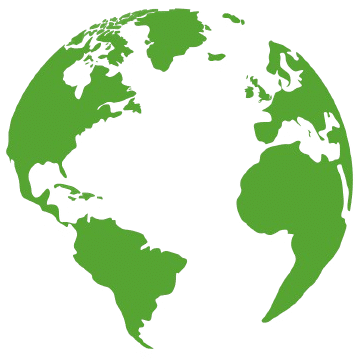In recent years, supply chains have transitioned from being corporate concerns to becoming national strategic priorities, geopolitics. Supply security has become a buzzword in companies' earnings calls. Therefore, there are larger geopolitical puzzles, especially between the USA and China, about who can secure the most redundant setups. This game typically takes place in foreign fields, such as for copper.
Geo-economically, China has an almost global monopoly on the processing of climate metals
- Although many raw materials are extracted in many places around the world, China is generally the world leader in processing raw materials. For example, China controls almost all global supplies of refined graphite, over 90% of manganese, 70% of cobalt (through control of mines in DR Congo), nearly 60% of lithium, and just under 40% of copper processing.
- But China consumes 54% of global copper production. Nearly a third of this is then re-exported as part of electronic products, including EVs.
- Therefore, continued copper supplies are critically important for China. That's why Chile has been part of the Belt and Road Initiative (BRI) from the start, even though the country's geography falls outside the primary geographic coverage of the BRI.
- Chile is the world's largest extractor (28%) of copper, and at the end of 2022 had nearly a quarter of the globally known copper reserves.
- Chile's external debt vs. GDP is among the highest in the world at 77%. The vast majority of this is owed to China, mainly from the BRI. This will remain so, as Xi Jinping has repeatedly promised additional funding to Chile's President Gabriel Boric in the fall of 2023.
- Boric himself refers to Chile as “China's gateway to LatAm.” Boric was a sharp critic of US foreign policy under Trump but is conciliatory under Biden. He has been a significant critic of Russia's invasion of Ukraine.
- Nevertheless, the US considers Chile an unreliable partner due to the country's large debt to China. This raises concerns about “debt trap diplomacy.” Therefore, the US seeks to free itself from its current strategic dependence on Chilean copper.
- Chile's external debt vs. GDP is among the highest in the world at 77%. The vast majority of this is owed to China, mainly from the BRI. This will remain so, as Xi Jinping has repeatedly promised additional funding to Chile's President Gabriel Boric in the fall of 2023.
Copper is crucial for climate transition
- Copper is one of the most important key metals for the climate transition because it has a unique ability to conduct electricity. There are no commercially available alternatives to copper, only silver.
- This is unlike most major climate metals, such as lithium, which can be replaced (over time) by sodium, sulfur, and vanadium.
- At the beginning of the 2030s, we will be missing more than 5 million tons annually. This is due to increased consumption from climate transitions and generally increased consumption of electronics. This amount corresponds to one-seventh of total demand.
- Therefore, supply security for copper is one of the most strategically important goals for all superpowers, including the EU, the USA, China, and India. Thus, all seek to create redundant supply chains to maintain a minimum flow during unrest.
Zambia has made significant copper discoveries in recent years
- In January of this year, the American AI-based startup KoBold Metals, with Breakthrough Energy Ventures as a major shareholder, announced the discovery of one of the world's largest copper deposits in Mingomba, Zambia, near the border with DR Congo and the copper mine there called Kamoa-Kakula.
- Zambia now has 7% of global reserves, up from 2% in 2022. Together with DR Congo, the two countries have by far the largest copper deposits in Africa.
- China controls the vast majority of DR Congo's cobalt extraction. But the copper mine specifically has a major Canadian shareholder (40%).
- The Mingomba mine is expected to extract over 600,000 tons of copper per year within 10 years. This will make it the world's second-largest producing mine.
- The discovery was originally made in 2022 but was only announced in January this year.
- This partly explains why Kamala Harris visited Zambia in 2023. It also explains why Biden planned to visit the country in 2023.
- Finally, it explains why Zambia has received PGII funding for a railway project to Lobito on Africa's west coast through Angola. The railway will be able to transport copper from both Zambia's and Congo's mines.
- The discovery also partly explains why Xi Jinping canceled his attendance at the G20 meeting in New Delhi in September. Instead, he received Zambia's President Hakainde Hichilema in Beijing. China is currently exploring options to renovate existing railways in Zambia. In February, BRI signed an agreement with DR Congo to establish/renovate a connecting line to Zambia's railway via Dar es Salaam in Tanzania. BRI previously conducted a sale-and-lease back on Zambia's national railway company.
- China is the creditor for 30% of Zambia's foreign debt. On one hand, China was the cause of the country's default in 2020, but on the other hand, it provided a smaller haircut and a larger restructuring in early summer 2023 (extension of the repayment period).
The copper shortage opens the door for even Afghanistan
- In 2023, China therefore turned its interest back to Afghanistan. The country has some of the world's largest copper deposits, in Mes Aynak near Kabul.
- Afghanistan has long spoken and written warmly about China.
- In September 2023, China appointed a new ambassador to Kabul, the first country in the world to do so since the Taliban takeover in 2021. They are therefore close to formally recognizing the Taliban as Afghanistan's legitimate rulers; as the first country in the world.
See also previous blogs on climate metals in general





